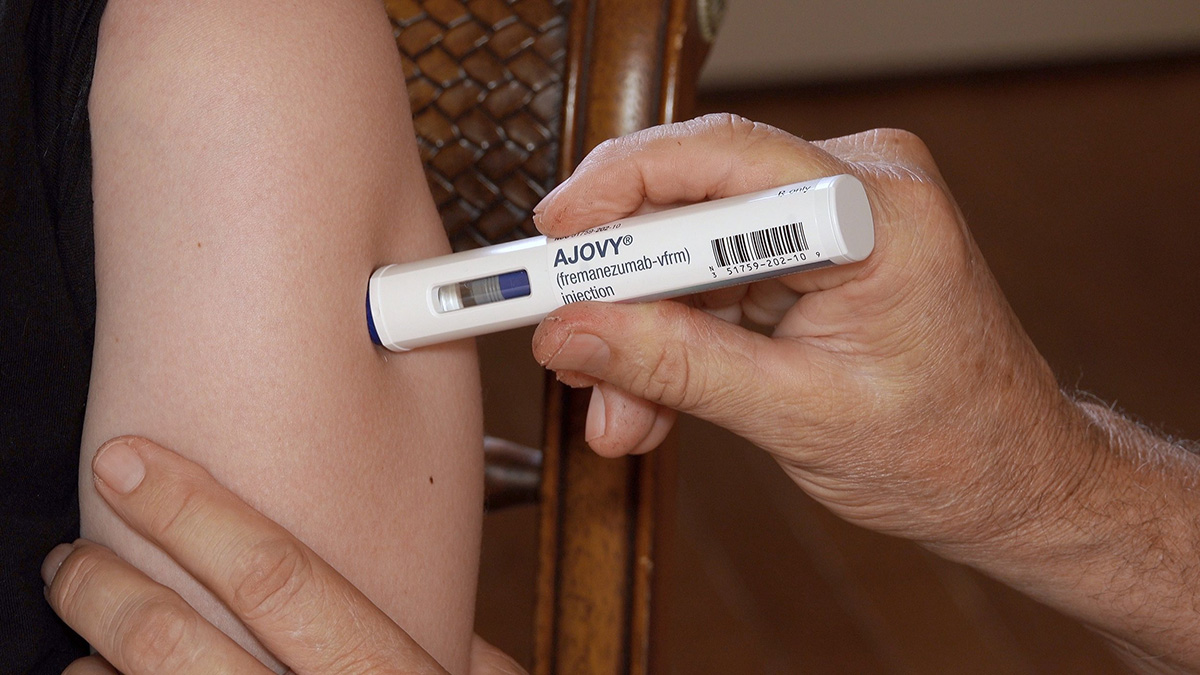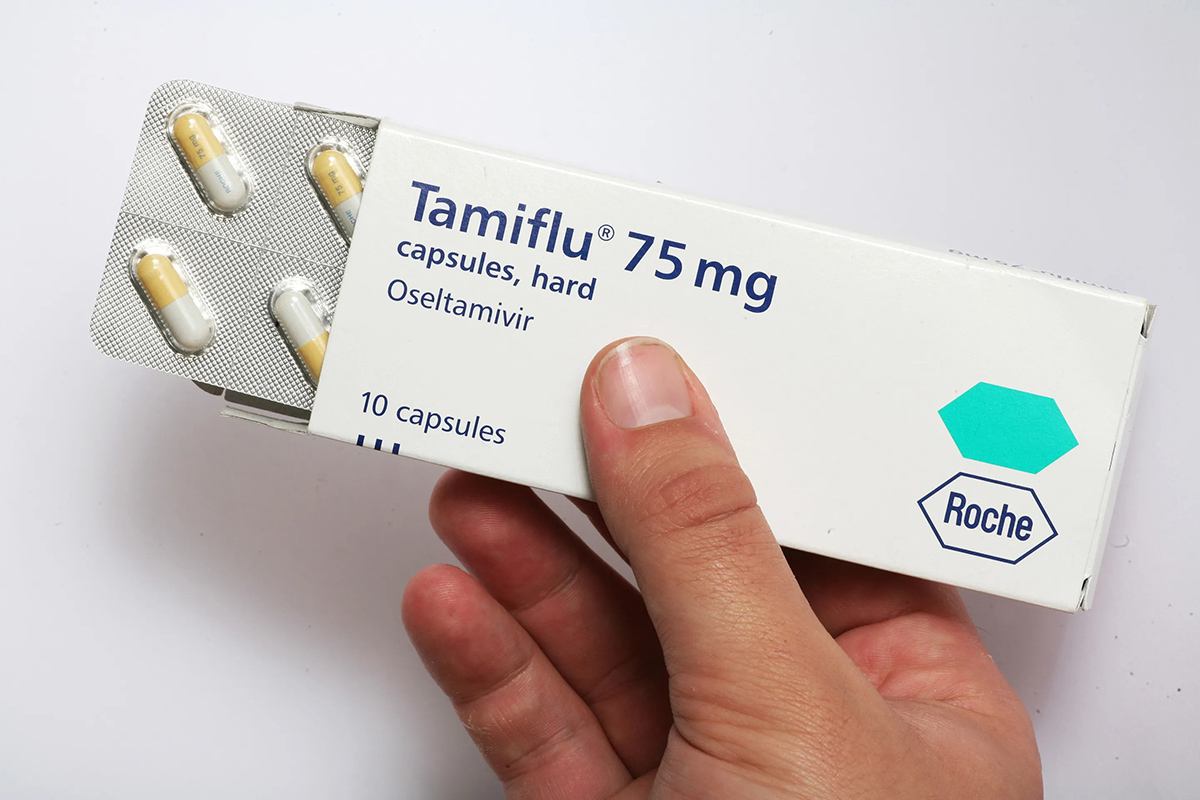

Finance
How Much Is Latuda With Insurance?
Published: November 19, 2023
Curious about the cost of Latuda with insurance? Discover the financial implications of this medication and find out how insurance coverage can help.
(Many of the links in this article redirect to a specific reviewed product. Your purchase of these products through affiliate links helps to generate commission for LiveWell, at no extra cost. Learn more)
Table of Contents
Introduction
Latuda is a medication commonly prescribed for the treatment of schizophrenia and bipolar depression. It belongs to a class of medications known as atypical antipsychotics and works by balancing certain chemicals in the brain. While Latuda can be highly effective in managing symptoms, the cost of the medication can be a concern for many individuals.
In this article, we will explore how much Latuda typically costs when covered by insurance. We will also discuss the various factors that can influence the cost of the medication and provide some tips for reducing expenses. Understanding the financial aspect of Latuda with insurance can help individuals make informed decisions about their healthcare and potentially reduce the burden of medication costs.
It is important to note that healthcare costs can vary depending on several factors such as location, insurance provider, specific insurance plan, and individual circumstances. The information provided in this article serves as a general guideline, but it is always recommended to consult with your healthcare provider and insurance company for accurate and up-to-date cost information.
Understanding Latuda
Before we delve into the cost of Latuda with insurance, it’s important to have a basic understanding of the medication itself. Latuda, also known by its generic name lurasidone, is a prescription medication primarily used to treat schizophrenia and bipolar depression.
Latuda works by targeting various receptors in the brain, including dopamine and serotonin receptors. By modulating the activity of these neurotransmitters, Latuda helps to restore the balance of chemicals in the brain, reducing symptoms of psychosis and mood disorders.
It is worth noting that Latuda is not a cure for mental health conditions, but rather a tool to manage symptoms and improve quality of life. It is typically prescribed by healthcare professionals after a thorough evaluation and diagnosis.
Latuda comes in the form of tablets, which are taken orally with food. The dosage and duration of treatment will depend on the individual’s condition and response to the medication. It is crucial to follow the prescribed dosage and any instructions provided by the healthcare provider to ensure the safe and effective use of Latuda.
Like any medication, Latuda may have potential side effects. Common side effects include drowsiness, nausea, weight gain, and restlessness. It is essential to discuss any concerns or side effects with a healthcare provider to determine the best course of action.
It is important to remember that Latuda is a prescription medication, meaning it can only be obtained with a valid prescription from a healthcare provider. Self-medication or obtaining Latuda from unreliable sources can be dangerous and is strongly discouraged.
What is Insurance and How Does it Work?
Insurance is a system in which individuals make regular financial contributions, known as premiums, to an insurance company in exchange for coverage of specific risks. Health insurance, in particular, provides financial protection and access to medical services and treatments.
Health insurance works by pooling the risk and resources of many individuals. The insurance company collects premiums from policyholders and uses these funds to cover the cost of medical treatments, medications, and other healthcare services outlined in the insurance plan.
When a person has health insurance, they typically pay a portion of the medical expenses out-of-pocket, such as deductibles, copayments, or coinsurance, while the insurance company covers the remaining costs. The specific coverage and costs vary depending on the insurance plan.
Insurance plans can either be offered by employers, government programs, or purchased independently. Employers often provide health insurance as part of their employee benefits package, while government programs like Medicaid and Medicare offer coverage to eligible individuals.
It’s important to note that each insurance plan has its own set of rules, coverage limits, and formularies (a list of approved medications). Therefore, it’s crucial to review the specific details of your insurance plan to understand what services and medications are covered.
When it comes to medications like Latuda, insurance coverage can help alleviate some of the financial burden. However, it’s important to be aware that not all insurance plans cover the same medications or have the same level of coverage.
Insurance plans often have a list of preferred medications, also known as a formulary. These formularies may categorize medications into different tiers, with different cost-sharing amounts for each tier. Tier 1 typically includes generic medications with the lowest out-of-pocket costs, while Tier 3 may include brand-name medications like Latuda with higher cost-sharing.
Understanding your insurance coverage, including formulary details and cost-sharing, is crucial in determining how much you will pay for medications like Latuda.
The Role of Insurance in Medication Coverage
Insurance plays a significant role in medication coverage, including medications like Latuda. It helps individuals access necessary medications and reduces the financial burden associated with healthcare expenses. Here are some key ways insurance impacts medication coverage:
- Formulary Coverage: Insurance plans typically have a formulary, which is a list of approved medications. This formulary categorizes drugs into different tiers, with different levels of coverage and cost-sharing. Latuda may be listed on the formulary, but it’s essential to check which tier it falls under and what portion of the cost you will be responsible for.
- Prior Authorization: Some insurance plans require prior authorization for certain medications, including Latuda. This means that your healthcare provider must provide additional documentation about your condition and the need for the medication before it is covered. It’s important to work closely with your healthcare provider to ensure timely approval and access to Latuda.
- Copayments or Coinsurance: Insurance plans often require individuals to pay a portion of the medication cost out-of-pocket. This can be in the form of copayments, where you pay a fixed amount (e.g., $20 per prescription), or coinsurance, where you pay a percentage of the medication cost (e.g., 20% of the total cost). The amount you pay will depend on your insurance plan’s terms.
- Deductibles: Some insurance plans have deductibles, which are the amount you must pay out-of-pocket before the insurance coverage kicks in. If you have a deductible, you may be responsible for the full cost of Latuda until you meet that amount. Once the deductible is met, your insurance will cover a percentage or set amount of the medication cost.
- Out-of-Pocket Maximum: Insurance plans typically have an out-of-pocket maximum, which is the maximum amount you will have to pay in a given year. Once you reach this limit, your insurance covers all additional costs for covered services, including medications like Latuda. This maximum can provide financial protection and peace of mind.
It’s important to review your insurance plan and understand the specific coverage details related to medication. This will help you anticipate and plan for any out-of-pocket expenses associated with Latuda.
Factors Affecting the Cost of Latuda with Insurance
Several factors can influence the cost of Latuda with insurance. Understanding these factors can help individuals anticipate and navigate the potential expenses associated with this medication. Here are some key factors to consider:
- Insurance Plan: The type of insurance plan you have significantly affects the cost of Latuda. Different plans have different levels of coverage and cost-sharing requirements. For example, a plan with a higher monthly premium may have lower copayments or coinsurance for medications like Latuda.
- Formulary Placement: The placement of Latuda on your insurance plan’s formulary can impact the cost. Medications listed in lower tiers typically have lower out-of-pocket costs, while those in higher tiers may have higher cost-sharing. It’s important to check which tier Latuda falls under and how it compares to other medications on the formulary.
- Prior Authorization Requirements: If your insurance plan requires prior authorization for Latuda, the process can add extra time and potential expenses. It is essential to work closely with your healthcare provider to ensure timely approval and avoid any unnecessary delays or costs.
- Deductibles: If your insurance plan has a deductible, you may be responsible for the full cost of Latuda until you meet that amount. This can significantly impact your out-of-pocket expenses. Once the deductible is met, your insurance coverage kicks in, and you will typically pay a predetermined copayment or coinsurance amount.
- Copayments or Coinsurance: The specific copayment or coinsurance amount for Latuda will depend on your insurance plan. It’s important to review your plan and understand how much you will be responsible for paying out-of-pocket each time you refill your prescription.
- Out-of-Pocket Maximum: The out-of-pocket maximum is the limit on the total amount you will have to pay for covered medical expenses, including medications like Latuda, in a given year. Once you reach this maximum, your insurance plan will cover all additional costs. It’s important to be aware of your plan’s out-of-pocket maximum to gauge the potential expenses for Latuda over the course of a year.
- Manufacturer Assistance Programs: Some pharmaceutical companies offer assistance programs that can help individuals with the cost of their medications, including Latuda. These programs may provide discounts or even free medication for eligible individuals. It’s worth exploring whether such programs are available for Latuda and if you qualify for them.
Considering these factors and discussing them with your healthcare provider and insurance company can provide a clearer understanding of the potential costs associated with Latuda.
Determining the Cost of Latuda with Insurance
The cost of Latuda with insurance can vary based on several factors. To determine the exact cost, it’s important to review your insurance policy and consider the following:
- Insurance Coverage Details: Start by reviewing your insurance policy to understand the specific coverage details for medications like Latuda. Check the formulary to see if Latuda is covered and which tier it falls under. Take note of any copayments, coinsurance percentages, deductibles, and out-of-pocket maximums.
- Contact your Insurance Provider: Reach out to your insurance provider to get a more accurate estimate of the cost. They can provide information on the specific amount you will need to pay for Latuda based on your plan’s coverage and any applicable cost-sharing requirements.
- Online Tools and Resources: Many insurance providers offer online tools or resources that allow you to search for the cost of specific medications. These tools can provide a general idea of the cost of Latuda with your insurance plan. However, keep in mind that the actual cost may still vary based on your specific policy and location.
- Pharmacy Pricing: Contact your preferred pharmacy or local pharmacies to inquire about the cost of Latuda. Different pharmacies may have different pricing structures, and it’s worth comparing prices to find the most affordable option.
- Manufacturer Discounts or Assistance Programs: Check if the manufacturer of Latuda offers any discounts or assistance programs. These programs can help reduce the cost of the medication for eligible individuals. Visit the manufacturer’s website or contact their customer service for more information.
- Consider Generic Alternatives: If the cost of Latuda is still prohibitive, discuss with your healthcare provider the possibility of using a generic alternative. Generic versions of medications are often more affordable and can offer similar effectiveness. Your healthcare provider can determine if a suitable generic alternative to Latuda is available.
By considering these factors and gathering information from your insurance provider, pharmacies, and manufacturer assistance programs, you can get a better estimate of the cost of Latuda with insurance. This will help you plan financially and explore options to make the medication more affordable.
Tips for Reducing the Cost of Latuda with Insurance
The cost of Latuda with insurance can be a significant concern for many individuals. However, there are several strategies you can employ to help reduce the financial burden. Consider the following tips:
- Review Your Insurance Plan: Take the time to understand your insurance coverage, including the formulary and cost-sharing details. Knowing what medications are covered and how much you will need to pay out-of-pocket can help you plan and anticipate expenses.
- Opt for Generic Alternatives: If available, discuss with your healthcare provider the possibility of using generic alternatives to Latuda. Generic medications are often more affordable and can provide similar benefits. However, it’s important to consult with your healthcare provider to determine if a suitable generic option is available.
- Utilize Manufacturer Assistance Programs: Check if the manufacturer of Latuda offers any assistance programs, discounts, or patient savings cards. These programs can significantly reduce the cost of the medication. Visit the manufacturer’s website or contact their customer service for more information on eligibility and how to enroll.
- Consider Mail-Order Pharmacies: Some insurance plans offer lower copayments or discounts for medications ordered through mail-order pharmacies. It’s worth exploring this option to potentially reduce the cost of Latuda.
- Compare Pharmacy Prices: Different pharmacies may have different pricing structures for medications. Take the time to compare prices among local pharmacies or explore online pharmacies to find the most affordable option for purchasing Latuda.
- Explore Assistance Programs: Inquire with your healthcare provider or local organizations about any assistance programs that can help individuals with the cost of medications. These programs may provide financial assistance or resources for obtaining prescription medications at reduced costs.
- Talk to Your Healthcare Provider: If the cost of Latuda is still a significant barrier, discuss your concerns with your healthcare provider. They may be able to suggest alternative treatments or work with you to find cost-effective solutions that meet your healthcare needs.
Remember, it’s essential to communicate and collaborate with your healthcare provider and insurance company in exploring cost-saving options for Latuda. They can provide valuable guidance and resources to help reduce the financial burden while ensuring effective treatment.
Conclusion
Managing the cost of Latuda with insurance can be a challenging task, but with the right information and strategies, it is possible to reduce the financial burden. By understanding your insurance coverage and exploring cost-saving options, you can work towards affordable access to this important medication.
Remember to review your insurance plan, check the formulary, and understand the copayments, coinsurance, deductibles, and out-of-pocket maximums associated with Latuda. Utilize resources such as manufacturer assistance programs and compare pharmacy prices to find the most cost-effective options.
Additionally, discussing your concerns with your healthcare provider can help explore alternative treatment options or suggest generic alternatives that may be more affordable. They may also be knowledgeable about local assistance programs that can provide financial support for medication expenses.
While the cost of Latuda with insurance can vary depending on individual circumstances and insurance plans, taking proactive steps to manage expenses can significantly alleviate the burden. Remember to seek accurate and up-to-date information from your insurance provider and healthcare team to ensure you make informed decisions about your healthcare.
Ultimately, the goal is to prioritize your mental health and ensure access to the medications you need to manage your condition effectively. By being proactive and informed, you can work towards affordable access to Latuda and focus on your overall well-being.














